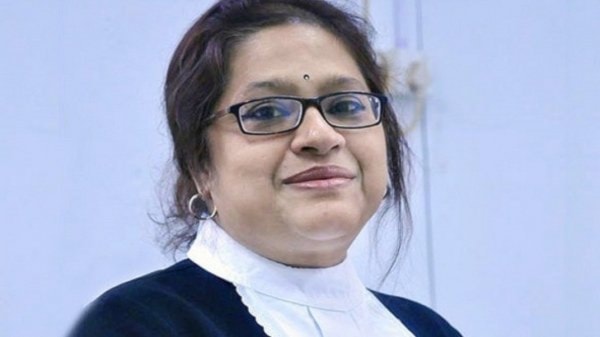Former Bangladesh prosecutor arrested for attempted murder
The case marks the first time that a former ICT prosecutor has been arrested on such charges.
-
 Former Bangladesh prosecutor Tureen Afroz (X)
Former Bangladesh prosecutor Tureen Afroz (X)
Bangladesh police arrested Tureen Afroz, a former senior prosecutor at the International Crimes Tribunal (ICT), on charges of attempted murder, officials confirmed on Tuesday. Afroz, who played a key role in prosecuting Islamist leaders during the rule of former Prime Minister Sheikh Hasina, was detained on Monday night in connection with a case linked to last year's student-led uprising.
Police Deputy Commissioner Muhidul Islam revealed that the case was filed by Mohammed Jabbar, a 21-year-old who was shot during protests in August when security forces attempted to suppress the demonstrations.
"This case has several co-accused, but none as prominent as her," the deputy commissioner told AFP.
The wider context
Afroz served as a prosecutor at the ICT, established by Hasina in 2010 to investigate war crimes committed during Bangladesh’s 1971 independence war against Pakistan.
The tribunal sentenced multiple political opponents to death, and its role has been criticized for allegedly targeting Hasina’s rivals. Afroz was involved in the prosecution of six Islamist leaders, including those from Jamaat-e-Islami, who were sentenced to death, with most being executed.
This marks the first time that a former ICT prosecutor has been arrested on such charges.
The case comes amid a series of arrests of individuals from Hasina’s administration, with the former prime minister herself facing accusations of crimes against humanity for the deaths of hundreds of protesters during the unrest that led to her ousting in August.
UN says former Bangladesh gov behind 'crimes against humanity'
In February, the UN accused Bangladesh's former government of orchestrating systematic attacks and killings against protesters last year to cling to power, warning that these actions could amount to "crimes against humanity."
According to the UN, former Prime Minister Sheikh Hasina’s government was responsible for a violent crackdown, including "hundreds of extrajudicial killings," before being overthrown in a student-led revolution last August.
In its fact-finding report on events in Bangladesh from July 1 to August 15 last year, the UN rights office stated there were "reasonable grounds to believe" that crimes such as murder, torture, imprisonment, and other inhumane acts had occurred.
The report alleges that these crimes, carried out by the government, members of the Awami League party, and Bangladeshi security and intelligence forces, were part of a coordinated effort to suppress protesters and civilians to maintain power.
Hasina, 77, has fled to neighboring India, defying an arrest warrant to face trial in Bangladesh for crimes against humanity.
Read next: UN says former Bangladesh govt behind 'crimes against humanity'

 3 Min Read
3 Min Read










